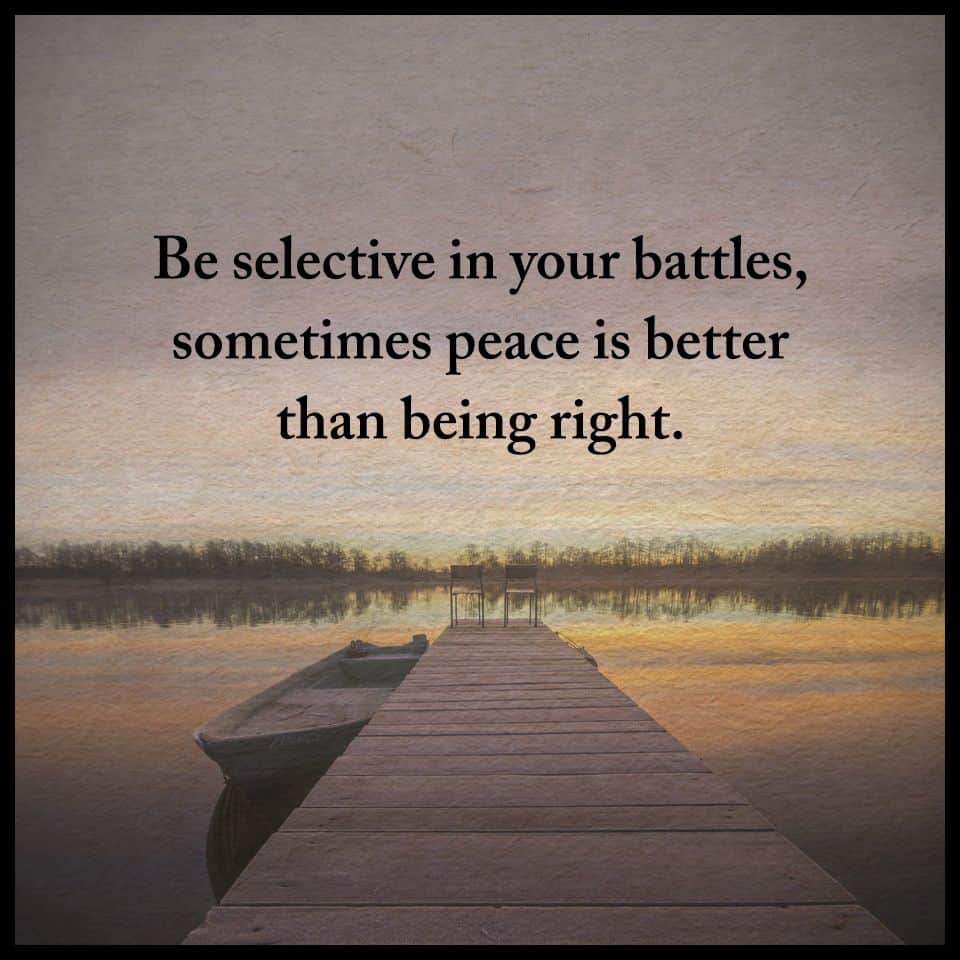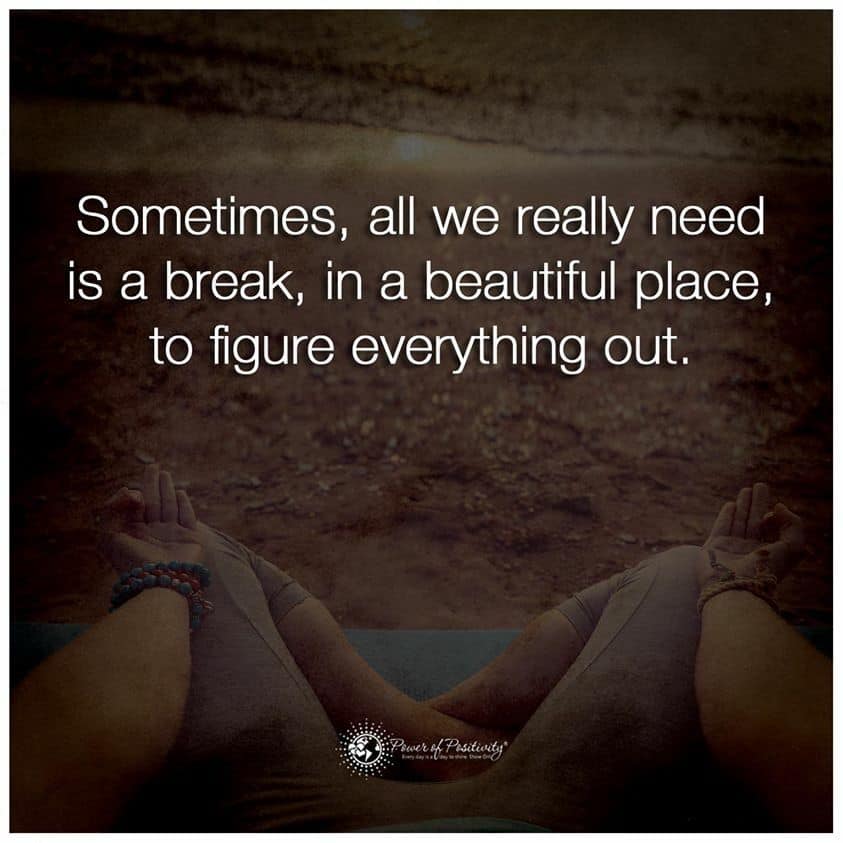Are you a people pleaser? Do you tend to be a yes man? There’s nothing inherently wrong with being able to fit a lot onto your plate. But you might find yourself overextending and becoming burned out often. The solution is clear–start saying “no.”
Before you know it, all the people you’ve said yes to have saddled you with tasks you can barely stand under. As time progresses, each task becomes harder and harder to finish, and you get more and more exhausted. Worse still, the constant people-pleasing means people are always coming to you to request assistance, and you’re at the end of your rope!
6 Ways You Can Start Saying No
How can you fix this? It’s simple – learn to start saying “no.” Of course, that’s much easier said than done, but it’s far from impossible and is a skill worth picking up. Here’s how to start saying no and stop struggling, according to therapists.
1. Say “I Don’t,” Not, “I Can’t.”
“I don’t” is quite a powerful phrase. It conveys the important message that you aren’t and will not be interested in or capable of doing an activity for a certain situation. You’re setting up your personal rules and showing your strong convictions that won’t be knocked down.On the other hand, when you say the phrase “I can’t,” you’re less firm. You’re saying a reluctant statement that tries to let the other down gently – “it’s not me, it’s just the circumstances”! Unfortunately, that can be misconstrued. Sure, to you, it’s a refusal, but other people can hear several different things, like:
- An excuse that can be debated or fought
- A lack of certainty that can be swayed
- A mind that can be convinced or changed
Vanessa Patrick, a Doctor Of Philosophy, authored a study about this very phenomenon. In it, she explains how her results indicated that using the phrase “I don’t” instead of “I can’t” resulted in more positive results from the refuser. It was simply more efficient and understandable, allowing for the firm message to come across quickly.
2. Be Aware Of Your Limits
Boundaries are essential for a positive life, with good work-life balances and relationships all around. But how can you ensure those boundaries are in place properly, and how can you determine your limits? Here are some ideas:
· Recognize What’s Feasible For You
You can’t do everything! When you have multiple areas of responsibility, it’s time to slow down. There will be time to do other things in the future. If you struggle with this concept, adjust the thought in your brain, says Licensed Clinical Marriage and Family Therapist and adolescent peer consultant Elizabeth Hinkle. You’re not saying no forever – just no, for now.
· Start Prioritizing
If you consider all your tasks equally important, you’re going to wind up burned out and exhausted. National Certified Counselors, Licensed Professional Counselor, and Mind Body and Soul founder Madeleine DiLeonardo suggests trying to find a balance that works best for you. Naturally, balance as a concept can change from week to week, but recognizing bandwidth allows you to determine how much you can put on your plate. Knowing that amount will let you choose what to prioritize.
· Give Yourself Permission
It’s difficult to accept that you have every right to be pushy back if someone is particularly pushy. Give yourself the permission to shoot back and make a joke out of the situation, recommends Bregman Partners CEO Peter Bregman. This will gain the other person’s respect and show them that your “no” means no, end of the story.
3. Be Kind
Depending on what you’re saying “no” to, the other person may be upset by your refusal. That’s perfectly fine and normal, especially if the person in question isn’t taking it out on you or being too aggressively pushy about it.
While you shouldn’t let your refusal be compromised, you can still be compassionate to the person in question. That can help you get your “no” out there without feeling guilty about hurting someone else. Here are some tips for this!
· Express Appreciation
It’s okay to tell someone that you appreciate that they’ve come to you. This doesn’t mean you’re going to change your answer, states Bergman – just that you want to make it clear that you understand what this must mean to them.
· Know It’s Okay To Let People Down
It is simply impossible to please everyone. Someone will feel disappointed by standing up for your boundaries will be okay and recover from this minor sting. DiLeonardo recommends working on not internalizing it – stay confident and retain positive thinking because you made the best decision for yourself.
· Offer An Explanation
Most people dislike not knowing why you’ve turned them down and potentially disappointed them. If possible, be honest about why you’re unable to do something, no matter what the cause is, recommends Bergman. This is especially true for people who are very close to you; the further the acquaintance, the less you’ll need to explain yourself.
· Say Kind Words And Be Supportive
What happens when you have to say no to someone who needs some assistance in a more serious variety? The Plaza Hotel’s Finishing Program and Beaumont Etiquette founder and director Myka Meier recommends making it absolutely clear that you care. Be supportive and offer compassionate words. Make sure they know that you do want to help and would if you were able to.
· Get It Straight – The No Is About The Request, Not The Individual
Please make sure the person who is asking for your aid knows you respect them as a person. Bergman says you should ensure that you’re clear that the “no” is for their question, invitation, or request, not for the actual person you’re dealing with. Be genuine about your feelings regarding your respect for them, so they know for certain that it’s truly not their fault.
4. Get Good At Being Assertive
Assertiveness takes time to learn and build. It’s a good idea to get started right now, but don’t aim too high just yet. Start by practicing your assertiveness in situations that are more low-stakes. As an example, you can:
- Tell a cashier that you do not use store credit cards when asked to apply, instead of politely saying, “not today, thanks.”
- Explain today a salesperson trying to convince you to buy something that you don’t use, want, or need their product, instead of turning them down very gently.
- Tell a distant acquaintance asking you to favor that you don’t have free time when they need you, instead of reluctantly agreeing or agreeing only to cancel later.
Why should you practice first? Well, assertiveness is much harder to come by when you’re trying to deal with the people close to you in your life. Practicing in advance will help you get into the swing of things, so you are more ready to be assertive among people you know.
Concerned that you might be too assertive? Push that thought aside! Studies have actually found that personal ideas of assertiveness aren’t accurate. This means that the way you perceive your “pushiness” is typically completely wrong! Don’t worry about being confrontational; as long as you’re not shouting or going overboard, there’s a high chance that the person you’re turning down isn’t perceiving you as threateningly as you think you’re being.
5. Tailor Your “No”s
Different people are going to need different kinds of “no”s from you. You wouldn’t, for example, say “no” to your sibling and your boss the same way. Meier recommends tailoring your phrases of denial based on your “audience.” Here are some examples:
· For A Friend
Gently be honest and direct about the reasons for your refusal, offer kind words, and suggest an alternative method of support or aid. If you have the bandwidth, offer to make it up to them – and make good on that offer. Don’t flake on them later!
· For A Colleague
Be casual but professional, maintaining clear, respectful language and making sure your explanation, if any, isn’t too personal.
· For A Boss
Express appreciation and desire to do your task, but explain the situation you have professionally. If the tasks currently taking your attention are work-related, convey that to your boss and ask if you should switch gears.
Need some go-to phrases? Avoid using the word “sorry” – you don’t owe someone an apology for being unable to meet their request! Instead, try some of these statements on for size; they work best for professional settings:
- I currently have too many commitments and am unable to give this my attention.
- Unfortunately, I’m not currently able to assist with that matter.
- I can help you find another person who is capable of taking on this task.
- I don’t have the time to devote to this task right now; I’ll be able to take it on in two weeks.
6. Accept That Missing Out Isn’t Always A Bad Thing
When you have to say no to some things, you’re going to miss out on those things. And that’s okay and completely fine! Unfortunately, a lot of people suffer from FOMO – the Fear Of Missing Out. If you get FOMO often, it could be preventing you from saying “no” and ruining your positive thinking when you have to.
Career coach and counselor Dara Blaine states that we live in what can be described as a “yes” culture. In this culture, people are always expected to say yes to further themselves. You might have heard some phrases like “the grind never stops”; that’s the kind of mentality that could make you believe you’ll never succeed if you take even one break.
It’s a good idea to start by laying out your personal goals. Understand the things that are most important to you. Once you know what matters most, you’ll know what you don’t want to miss out on and what doesn’t truly matter in the long run.
Final Thoughts On How To Say No And Stop Struggling, According To Therapists
It can be tough to say “no” to the people in your life, especially those you see often or who mean a lot to you, and even more so if you’re not used to it. But ultimately, learning when to put your foot down and say no is crucial in maintaining your health and wellness. So don’t spread yourself too thin!

















 Community
Community

